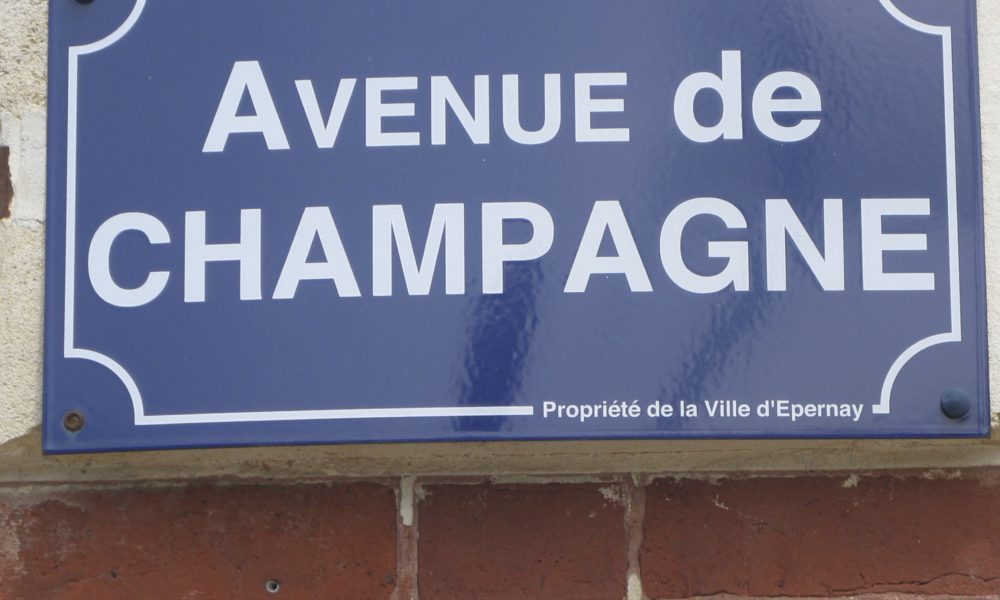
“An hour without champagne is an hour wasted” (Winston Churchill)
49° 2′ 09.6348” N 4° 01′ 1.56” E
July 10. – 2014
Two mechanics come at 10.30 and remove the defect cardan-joint. They are polite but have previously written off any communication with these non-French speaking tourists. “Call the boss,” they say.
We give the port captain, monsieur Bernard, two bottles of Burgundy wine as a thank you for his efforts to obtain a mechanic. He is pleased. “Tres gentile“, “Tres gentile“.
Epernay is the champagne capital. Shoulder to shoulder you find one champagne company after another along the city’s exclusive main street, Avenue de Champagne, – Moet et Chandon, De Castellane, Perrier-Jouët and Mercier. It is all bursting with prosperity. The companies are housed in old and new palaces, with sumptuous towering, newly renovated facades. Many offers tours or tastings.
We visit Mercier, for here, Anders and Kirsten had a fine experience on a previous visit. It is truly impressive. Alone this company, Mercier, has dug 30 meters deep into the limestone and has a total of 18 kilometre long hallways and basements for the storage of champagne. We drive around the corridors in an electric train and hear, how champagne is made. How long it ferments, how often the bottles are rotated, how waste substances are separated, and how the bottles are filled again. Along the way artists have decorated the walls with pictures. It is bursting with prosperity.
On the way back along the Avenue de Champagne, we pass Pol Roger, which was Winston Churchill’s favourite brand. “In victory you deserve it, in defeat I need it,” he said. Churchill is also quoted for saying: “Avenue de Champagne number 44 in Epernay is the world’s most drinkable address.” And he also needs to have said: “An hour without champagne is an hour wasted.”
An advertising agency could not wish for more.
At dinner on Ronja Anders recalled yet another of Churchill’s immortal quotes. Winston Churchill at a dinner had an English lady as a dinner partner. She exclaimed indignantly: “But you are drunk!” “Yes,” replied Churchill. “And you are ugly. But tomorrow I’m sober. ”
At Mercier we met Göran, Arvedahl and his two friends. He mentions to us that one of the crew, Ingelill, can speak some French, and she offers to call the mechanic, and ask the questions we want answered. It does not, however, bring much new. Only that the effort now is focused on obtaining a new sparepart from Holland or Germany. We can get a detailed message, when talking to the mechanic tomorrow, Friday, at 11 o’clock.
In the evening we are invited to coffee and strawberry tart on “Evanna III” Göran Arvedahl hosts. His two friends are respectively retired as a teacher and trumpeter. He himself is retired as CEO of a Swedish company that distributes TV signals for nordic broadcasters. Hi is a trained engineer. We all ready guessed that.
It was an interesting evening, where the talk is about the goal of life, dreams, ambitions and occasional setbacks.
Göran read Göran Schildts “Wish journey” many years ago, and it has stored in his mind, as something he would like to accomplish one day. A few years ago he lost his wife, an indescribable grief, he retired and thought that now his ambition to follow Göran Schildt might never be realised. But something in him insisted.
He began to plan the 14 week in Göran Schildts wake. He sought out a boat on display in Finland, he spoke with Goran Schildts wife number two. He acquired a first edition of “Wish Journey”. As he speaks, it becomes clear to us, that the implementation of the Wish Journey II is largely a therapeutic treatment of his own grief over the loss of his wife. A manual from the crisis, and he deserves respect for that.
He tells us how tired he was, when he reached England after tough sailing over the North Sea. He tells how he has been on the verge of giving up. But now, nine weeks are completed and only five weeks remaining, now he is committed more than ever to the project.
What happens when you reach Marseille? We suppose you’re going on to Italy, Croatia and the Greek Archipelago?
No, Göran thinks he is not. He likes the idea, that all options are open to him. But when he reaches Marseille, it is time to return home.